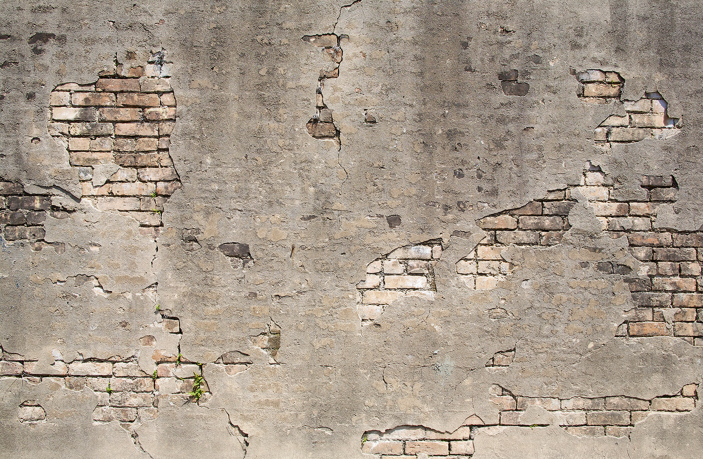Concrete Repair and Maintenance: Keep Your Frameworks Solid and Durable
Concrete Repair and Maintenance: Keep Your Frameworks Solid and Durable
Blog Article
Revealing the Eco-Friendly Advantages of Making Use Of Recycled Concrete in Sustainable Construction Practices
In the realm of sustainable building techniques, the use of recycled concrete stands as a critical yet frequently undervalued resource. Past its standard applications, recycled concrete deals a myriad of environmentally friendly benefits that prolong much beyond the confines of standard building and construction products. From decreasing environmental influence to improving cost-efficiency, the implications of integrating recycled concrete in lasting building practices are considerable. This versatile material not just addresses pushing environmental issues yet additionally offers a practical service to the difficulties dealt with by the building and construction sector at huge.
Environmental Advantages
By integrating recycled concrete into building and construction techniques, there is a substantial reduction in the demand for new raw products, leading to conservation of all-natural resources. Additionally, the use of recycled concrete lessens the amount of waste being sent out to land fills, thereby reducing environmental air pollution and minimizing the stress on landfill capabilities (Concrete).

Moreover, the manufacturing of conventional concrete is a considerable source of carbon exhausts due to the energy-intensive process of cement production. In contrast, recycled concrete has a reduced carbon impact as it minimizes the demand for brand-new concrete manufacturing. This reduction in carbon exhausts adds to mitigating climate modification and sustains lasting building techniques. On the whole, the ecological advantages of making use of recycled concrete are significant and play a vital duty in advertising environment-friendly building and construction techniques.
Cost-Efficiency
When evaluating the application of recycled concrete in construction tasks,Accomplishing cost-efficiency is a paramount consideration. Among the essential benefits of using recycled concrete is its cost-effectiveness compared to conventional concrete. The production of recycled concrete entails less power and resources as it uses existing products, lowering the overall job expenses considerably. Furthermore, the schedule of recycled concrete locally can additionally decrease transport expenditures, making it a more affordable option for building and construction jobs.
Moreover, using recycled concrete can lead to financial savings in landfill expenses by diverting concrete waste from disposal websites. This not just minimizes the ecological impact yet additionally eliminates the expenses connected with waste removal. In addition, the longevity and performance of recycled concrete are similar to conventional concrete, guaranteeing that price savings do not compromise the top quality of the building.
Resilience and Strength
Recycled concrete deals similar, if not premium, sturdiness and toughness homes to traditional concrete - Concrete. Via innovations in handling methods and top quality control, recycled concrete can meet or exceed the efficiency requirements of traditional concrete.

Waste Decrease
Reliable waste reduction methods play an important duty in the sustainable usage of resources within the building and construction industry. Waste reduction is a key benefit that contributes dramatically to environmental conservation when it comes to see it here using recycled concrete. Typical building techniques commonly create significant quantities of waste, specifically in the form of concrete rubble from demolition sites. By incorporating recycled concrete into building and construction projects, this waste is repurposed and drawn away from land fills, reducing the general ecological influence of construction tasks.
In addition, the usage of recycled concrete can lead to cost financial savings for building tasks, as it is frequently blog a lot more cost effective than sourcing and transferring brand-new products - Concrete. In conclusion, waste reduction through the utilization of recycled concrete is an important part of lasting construction methods that benefits both the construction and the atmosphere sector as a whole.
Power Conservation
Energy preservation is an essential aspect of sustainable construction techniques, aiming to decrease the general power intake related to structure operations and materials production. Considerable power financial savings are accomplished compared to traditional concrete manufacturing when it comes to utilizing recycled concrete in building. The procedure of creating recycled concrete includes recycling and squashing existing concrete products, which takes in less energy than mining, processing, and transferring resources for new concrete production. Additionally, the usage of recycled concrete can help decrease the demand for virgin aggregate, more decreasing the energy-intensive removal and handling of all-natural resources.
Final Thought
To conclude, the application of recycled concrete in lasting building and construction techniques uses countless environmental benefits, cost-efficiency, durability, stamina, waste decrease, and power preservation. By integrating recycled visite site concrete into building and construction projects, we can add to an extra lasting and ecologically friendly future. It is crucial for the building sector to prioritize making use of recycled materials to help in reducing the environmental impact of building activities.
One of the crucial advantages of making use of recycled concrete is its cost-effectiveness compared to standard concrete.Moreover, the use of recycled concrete can lead to cost savings in land fill costs by diverting concrete waste from disposal sites. The durability and efficiency of recycled concrete are comparable to conventional concrete, guaranteeing that expense financial savings do not jeopardize the quality of the building.

Report this page